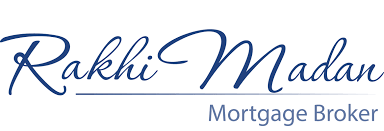On June 4th, the Bank of Canada decided to hold its overnight rate at 2.75%, extending a pause that began after several rate cuts. While this keeps things unchanged for variable mortgage rates, the bigger picture is far more complicated for homebuyers and owners in Brampton, Toronto, and the GTA.
Inflation and Bond Yields Are Moving in Opposite Directions
The BoC is navigating a tricky balancing act. Inflation, especially core inflation, is still higher than they’d like. In April, core inflation measures ticked up to 2.3%, driven by rising prices for food and other goods. Trade disruptions and new tariffs are only adding to cost pressures.
At the same time, Canada’s economic growth is losing steam. Job losses are piling up, especially in industries tied to exports. Domestic spending is sluggish, and consumer confidence is under strain. GDP growth could turn negative for the second and third quarters of 2025.
Even with these challenges, bond yields are climbing higher, driven by inflation and investor concerns over ballooning government debt here in Canada and the U.S. This surge in yields has pushed up fixed mortgage rates, even as variable rates stay put.
Rising Tariffs Add Uncertainty
Trade disputes are intensifying again as the U.S. has doubled tariffs on Canadian steel and aluminum, pushing them to 50%. While Canada saw a temporary boost in first-quarter exports as businesses raced to ship goods before tariffs hit, that momentum has likely faded. The outlook for Canadian exporters and manufacturers is clouded by these trade wars.
Today’s BoC statement confirmed the Bank’s focus on key factors:
✔️ By how much will higher U.S. tariffs reduce demand for Canadian exports, and how will that affect business investment, employment, and household spending
✔️ How much and how quickly cost increases are passed on to consumer prices
✔️ How inflation expectations evolve
Surveys show that households and businesses expect these tariffs to push prices higher, a risk that’s making the BoC nervous about falling behind on inflation control.
Despite Optimism, Global Forces Could Push Borrowing Costs Higher
Although there’s a h2 case for more rate cuts from the Bank of Canada later in 2025, mounting global bond market pressures can’t be ignored. Despite optimism about more cuts, rising deficits in Canada and abroad, coupled with inflation, could push borrowing costs higher over time.
What This Means for Your Mortgage
Here’s how these conflicting forces play out for Brampton homebuyers and homeowners:
Fixed-Rate Mortgages:
Rising bond yields are driving fixed mortgage rates higher, making locking in a rate slightly more expensive than it was just a few weeks ago. If the certainty of fixed rates is needed, be sure to get a rate hold. Over the last year, we have seen fixed rates tumble but then reverse, so getting a rate hold is always a good idea. If rates drop, you don’t lose because you’ll get the lower rate. If rates rise, you win.
Variable-Rate Mortgages:
Since variable rates are tied to the Bank of Canada’s overnight rate, they remain steady for now, but expected BoC cuts later this year would bring relief.
Renewals:
If your mortgage is up for renewal, be prepared for higher fixed rates. Comparing options and working with a trusted Brampton mortgage broker like Rakhi Madan is a winning strategy.
First-Time Buyers:
Buying a home is more challenging as affordability remains an issue, but there are still strategies to manage costs and protect your budget. You could opt for a fixed payment variable, which helps with budgeting, or take a hybrid mortgage that is both fixed and variable. However, most first-time buyers need the certainty of fixed rates. A fixed rate with a cash back option may be worth considering. Rakhi has the clout to get you the best fixed or variable rate and mortgage features for your situation.
What’s Next for Rates?
The next Bank of Canada decision is set for July 30, and the Bank will have more data by then:
- Two more inflation (CPI) reports
- Two more employment updates
Many analysts expect the Bank to cut rates later this year if the economy continues to slow and inflation pressures ease. Markets are betting on two more rate cuts by the end of 2025, potentially bringing the overnight rate down to 2.25%, but that is not guaranteed. Economists caution that if global pressures drive up bond yields, fixed rates could still edge higher, even if the BoC trims variable rates.
How Rakhi Madan Can Help
Navigating these uncertain conditions takes experience and the right approach. As one of Brampton’s top mortgage brokers, I’m here to help you:
✔️ Understand how market shifts affect your mortgage and payments
✔️ Shop multiple lenders for the most competitive rates and best mortgage product
✔️ Create a strategy that fits your long-term goals, whether you’re buying, renewing, or refinancing
As Robert McLister, Canada’s leading mortgage authority, put it, the BoC is “swaying on a tightrope” between inflation risk and the threat of job losses. In a time when every dollar matters and uncertainty looms large, having a trusted advisor on your side can make all the difference.
Final Note:
If you’re worried about how these changing conditions might affect your mortgage, don’t wait — let’s talk! As your dedicated mortgage broker in Brampton, I’m here to help you secure the best deal possible.
Frequently Asked Questions (FAQ)
Q: Will my variable-rate mortgage payment change after today’s Bank of Canada decision?
A: No. Because the Bank of Canada kept its overnight rate steady at 2.75%, prime rate stays at 4.95%, so variable-rate mortgage and line of credit payments remain the same, for now.
Q: Why are fixed mortgage rates going up if the Bank of Canada is holding steady?
A: Fixed mortgage rates are closely tied to bond yields, which have been rising due to investor worries about government debt and inflation. So even if the BoC holds or cuts its rate, fixed rates could keep climbing if bond markets stay volatile.
Q: Is it better to choose a fixed or variable mortgage right now?
A: It depends on your risk tolerance and financial goals. Fixed rates offer stability. Variable rates are stable for now and could drop later if the BoC cuts rates, but that is not guaranteed. Working with a mortgage broker can help you compare options and decide what’s best for you.
Q: When is the next Bank of Canada meeting?
A: The next BoC interest rate decision is scheduled for July 30, 2025.


